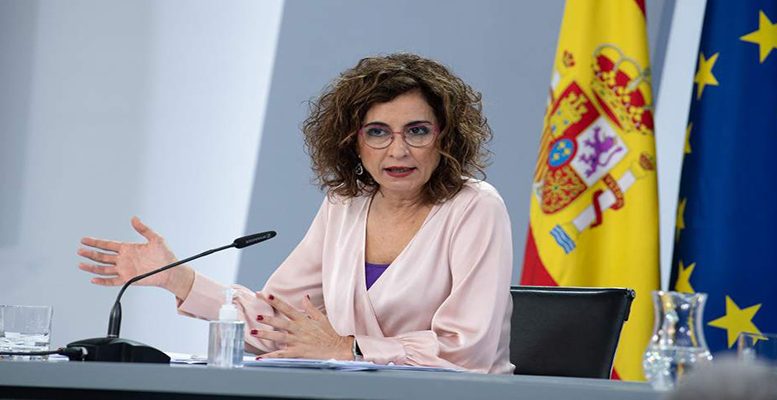The Council of Ministers on Tuesday approved the draft General State Budget for 2023 agreed by the coalition partners. The accounts are based on a new macroeconomic framework that reduces the GDP growth forecast for 2023 from 2.7% to 2.1%, on a record expenditure ceiling of 198.221 billion euros.
Current spending grows by 6.9% (18.3% if one takes into account that refugee aid measures are now supported here). Meanwhile, so-called “social spending” has grown to a record 266.719 billion euros, including the revaluation of pensions at around 8.5%, Montero explained. The budget also includes a 3.5% pay rise for civil servants.
The other budgetary milestone will be the sharp increase in public investment by 33%, up to a maximum of 11.8 billion euros, thanks to the addition of European funds for recovery. That said, the main challenge will be to unblock the bureaucratic bottleneck that has held up its implementation until now. On the other hand, defence spending will experience an unprecedented 26% increase in order to fulfil the commitment with NATO to progressively increase the military budget,
The daily Expansión describes the budget as electioneering and reckless: “The drastic worsening of the economic outlook for next year should have led the PSOE and Podemos government to propose austere and responsible budgets. However, both parties have opted to prioritise their electoral urgencies, drawing up budgets that shoot up social spending to a new all-time high – six out of every ten euros – with reckless measures such as increasing spending on pensions by 8.5 per cent or raising public wages by up to 3.5 per cent next year. Despite forecasting that revenue will grow by 6% over the record reached this year due to very strong inflation, thanks in part to the new tax hikes, the Treasury is keeping its deficit and public debt reduction targets unchanged. And it is not heeding the requests of the European authorities to speed up the fiscal consolidation path at a time of great uncertainty and when the markets are watching the most indebted countries with a magnifying glass”.





